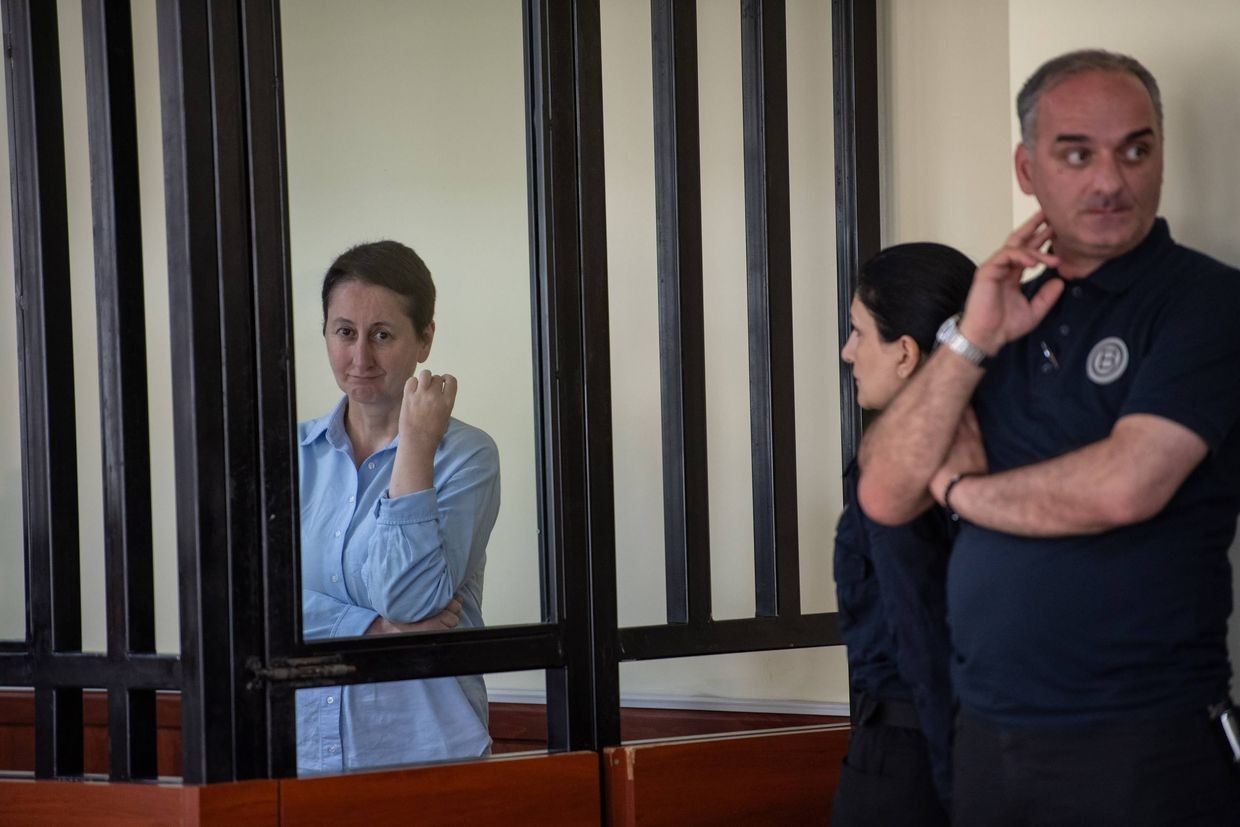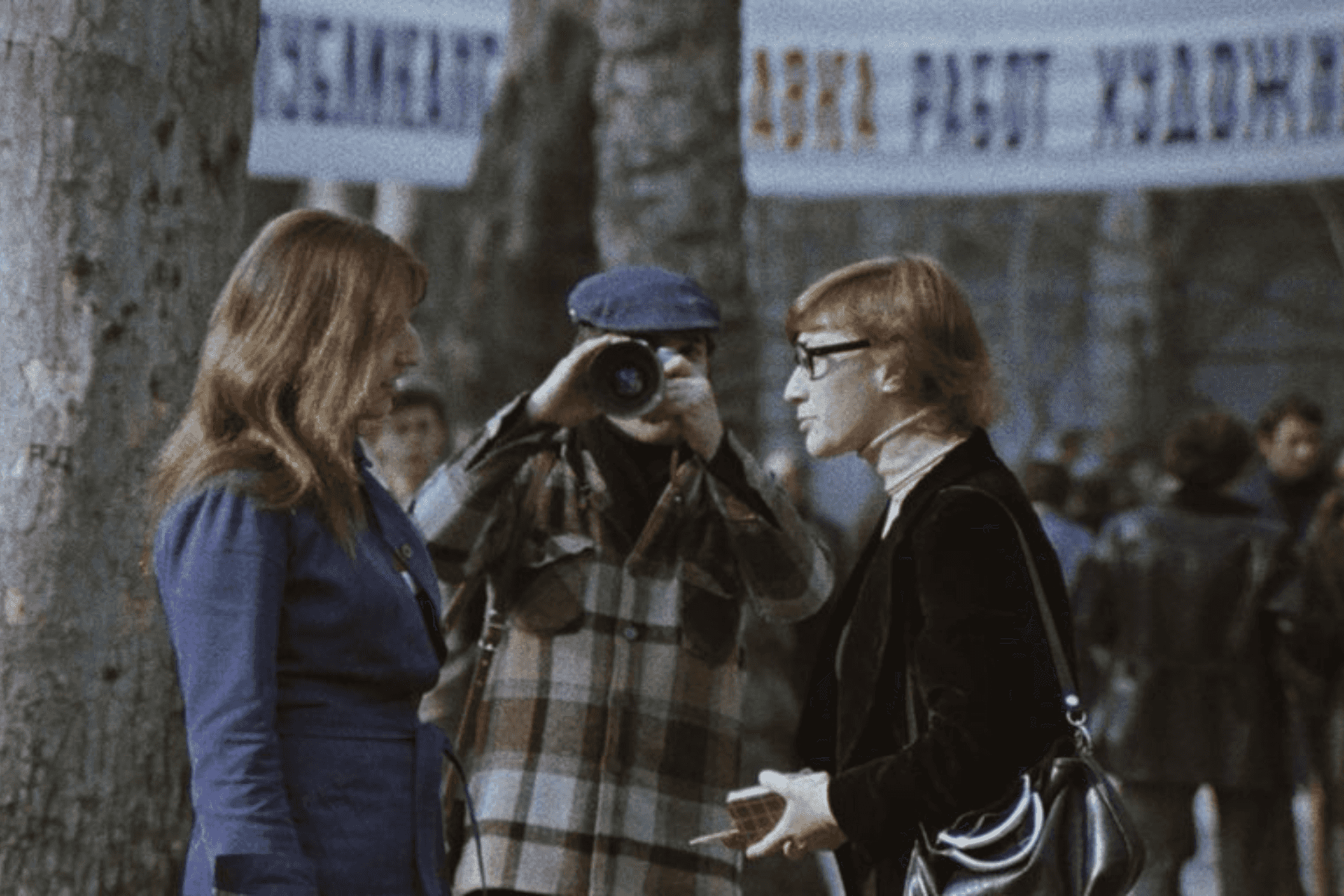Review | Prisoners of Conscience — Georgian filmmakers tell the stories of detained protesters
The short documentaries were screened at the London Georgian Film Festival the same day as Georgia’s controversial municipal elections.

On 4 October, the same day as Georgia’s municipal elections, the London Georgian Film Festival hosted a special screening titled Prisoners of Conscience. It was undoubtedly one of the most emotional days of the festival — especially for the Georgians in the audience.
The programme featured a series of short films exploring the stories of the ordinary-people-turned-protesters who were detained during the early days of the still ongoing daily protests. It was created by Georgian filmmakers in collaboration with Cinema Movement, Georgian Cinema Under Threat — a movement of film industry professionals boycotting the Georgian National Film Centre (GNFC) demanding its independence. The screening was introduced by its members, Blueberry Dreams director Elena Mikaberidze and Inner Blooming Springs director Tiku Kobiashvili (both films had their London premiere at the festival).
These films — raw, emotional, and deeply human — offered a piercing reminder that countless Georgians are paying a devastating personal price for their fight for the country’s European future.
The evening opened with Tiku Kobiashvili’s moving video story about Zviad Tsetskhladze, a law student and leader of the youth movement Dapioni, as told by his mother. In her introduction, Kobiashvili shared that she befriended Tsetskhladze after his arrest in December 2024 on charges of organising and leading group violence, after which she decided to tell his story. In September 2025, Tbilisi City Court sentenced him to two years and six months in prison under reclassified charges of ‘organising or taking part in a mass unrest’.
One by one, the short films unfolded: parents reading handwritten letters from prison cells, voices trembling with tears; glimpses of missed birthdays and children growing up without fathers; memories of love, hope, and resilience. Each story captured not only what these people have lost, but also what they continue to fight for.
People whose faces we now recognise from courtrooms and daily news appeared on screen, smiling in their childhood photos, in blurry phone footage, and in their friends’ words. Included among them were:
- Journalist Mzia Amaghlobeli, founder of Batumelebi and Netgazeti, who was arrested following clashes at a Batumi protest and sentenced to two years in prison on charges of resisting the police, a case widely condemned as politically motivated;
- Temur Katamadze, a pro-European activist of Georgian descent, who was detained during protest crackdowns and later deported to Turkey, with supporters claiming his expulsion was politically driven;
- Insaf Aliev, a Georgian–Azerbaijani who was arrested amidst the November–December 2024 demonstrations and sentenced to two years in prison for ‘group violence’;
- Mate Devidze, a 21-year-old protester, who received four years and six months for allegedly assaulting a police officer;
- Giorgi Mindadze, a 21-year-old medical student, who was sentenced to five years on similar charges;
- And Russian activists Anastasia Zinovkina and Artem Gribul, who joined Georgia’s pro-democracy rallies, and were later arrested on drug-related charges that rights groups consider fabricated and were each sentenced to eight and a half years in prison.
One of the most affecting moments of the screening was the story, directed by Levan Shubashvilia, of Giorgi Gorgadze, a young football fan whose dreams were recounted by his childhood friends with the kind of bittersweet honesty only people in their early twenties can express. The scenes of Gorgadze at his school prom, and the clip capturing his unrestrained joy when Georgia qualified for the European Football Championship, were enough to move many in the audience to tears.
The films’ strength lay in their simplicity — they did not dramatise the situation in Georgia but quietly revealed the human cost of political repression. By showing fragments of ordinary lives interrupted, Prisoners of Conscience reminded viewers that these stories are not symbols or statistics, but real people who once laughed, hoped, and celebrated like everyone else.
As the Georgian government ramps up pressure towards protesters and critics, this screening operated as both testimony and a warning.










